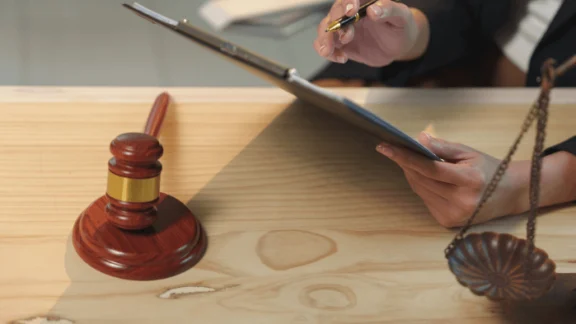Divorce hearings take place in a family court and are overseen by a judge whose aim is to help divorcing couples reach an agreement on their financial and child arrangements, and if they are unable to do so, they will make a decision on their behalf. Divorce hearings are typically required when divorcing parties cannot reach an agreement on divorce matters between themselves and where mediation has also proved ineffective. There are three stages of divorce hearings in the UK: (1) the First Appointment hearing, (2) the Financial Dispute Resolution hearing (FDR), and (3) the final hearing. FDR and final hearings may not be required if the judge can help the parties reach a decision earlier in the process. In fact, the majority of UK divorce settlement cases do not go to a final hearing. In 2023, approximately 14% of divorces went to a final hearing for a financial remedy order, while 86% were settled beforehand 1.
Process of UK divorce hearings
First Appointment
Once the court receives your application for a court order, they will arrange a First Appointment for you and your ex-partner to attend. Your first appointment should be between 12 and 16 weeks from the date you submitted your application for a financial settlement order. You must also both provide full disclosure of your respective financial situations (Form E) and share this with the other party no later than 35 days before your first appointment. Any other documents (i.e. questionnaire, timeline, and statement) required must be filed no later than 14 days before your first appointment.
During the session, you will both meet with a judge to discuss your case. The judge may:
- Provide further directions on how your case will proceed
- Help you both reach an agreement
- Delay your hearing and request further information
- Make a final financial order if you and your ex-partner can reach an agreement
- Recommend a financial dispute resolution (FDR) hearing if the matter is not resolved in the first appointment, or
- Request that both parties attend mediation The Financial Dispute Hearing (FDA)
Financial Dispute Resolution Hearing (FDR)
No later than seven days before your FDR hearing, the person applying for the court order is required to file details of all offers, proposals and responses they have received from the other party. They should also include any counter-offers and counter-proposals.
You and your ex-partner must attend the financial dispute resolution (FDR) hearing if one has been arranged for you. At the FDR session, the judge will discuss your case further and help you to reach an agreement regarding your matter.
If you cannot reach an agreement between yourselves with the aid of the judge, a final hearing date will be arranged.
Final Hearing
At the final hearing, a judge will make a final decision on behalf of you and your ex-spouse. The judge will issue the final Financial Settlement Order or Child Arrangement Order, which is then legally enforceable. There are two important points to remember about your final hearing:
- The judge presiding over your Final Hearing will not be the same judge you have seen in previous hearings and
- The judge overseeing your Final Hearing cannot issue a final order until your Conditional Order has been approved by the family court.
How to prepare for a divorce hearing in the UK
To prepare for your divorce hearing in the UK, we recommend taking the following steps:
- Understand the Type of Hearing:
It is important to know the differences between the various types of divorce hearings so you can prepare accordingly:- The First Hearing is primarily administrative, aimed at identifying the key issues that need to be resolved (such as finances, property, and child arrangements).
- The Financial Dispute Resolution Hearing (FDR) is a negotiation session where both parties attempt to reach a financial settlement with the judge’s assistance, avoiding the need for a full trial.
- The Final Hearing takes place if no agreement is reached, and a judge will make a binding decision on the outstanding matters.
- Ensure You Have the Necessary Documents:
Depending on the type of hearing, you may need to gather and organise documents such as:- Divorce petition and any responses
- Financial Disclosure forms (Form E)
- Statement of Issues (a brief summary of the key points in dispute)
- Skeleton Argument (a concise document outlining your legal arguments)
- Relevant evidence (e.g., bank statements, payslips, property valuations, and records of childcare costs)
- Clarify the Points of Disagreement:
Understand the specific areas of dispute between you and your ex-partner, and consider in advance what compromises you might be willing to make. - Prepare for Negotiation:
Most hearings, particularly FDRs, are designed to encourage settlement without proceeding to a final trial. Judges expect both parties to have made genuine efforts to resolve disputes over financial matters or child arrangements. - Seek Legal Advice Where Possible:
Even if you are representing yourself, it is highly advisable to consult a divorce solicitor or barrister to review your documents and preparation. Their input can significantly improve your case presentation.
Reference:
1 Courts and Tribunals Judiciary: Family Court Annual Report





